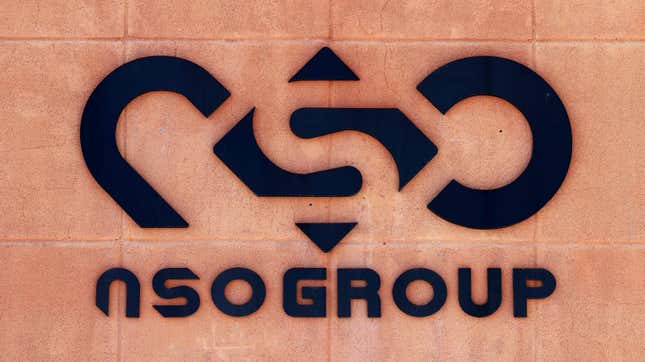
The United States Supreme Court wants the Biden Administration’s take on whether or not civil litigation laws apply to the world’s most infamous surveillance for hire firm.
In an unusual Monday order spotted by Al Jazeera, the court asked for the Justice Department’s input on whether the Israeli-based spyware company NSO Group could claim sovereign immunity for working on behalf of an “unknown” foreign government.
As a quick refresher, Meta-owned WhatsApp sued NSO back in 2019 for allegedly violating the Computer Fraud and Abuse Act when it exploited a vulnerability in the app allegedly infecting more than 1,400 devices with malware. Those reportedly included the devices of journalists, politicians, and human rights advocates. Now, NSO is trying to weasel its way out of litigation by claiming it was working at the behest of a foreign government and should be viewed as a foreign agent immune from civil litigation.
In a statement, a Meta spokesperson said they are currently exploring how the case is developing but reaffirmed its opposition to NSO’s claims around immunity.
“NSO’s attack on journalists, human rights defenders, and government leaders was illegal under U.S. law and they must be held to account,” the spokesperson said. “Granting spyware firms immunity would further jeopardize people’s safety as numerous NGOs and technology companies have argued before the federal bench.”
NSO did not immediately respond to Gizmodo’s request for comment.
This isn’t NSO’s first attempt at claiming immunity. The ailing surveillance firm invoked the argument to try and persuade a U.S. Court of appeals late last year but failed. In its ruling, the Ninth Circuit said foreign service immunity claims don’t protect foreign companies.
“Whatever NSO’s government customers do with its technology and services does not render NSO an ‘agency or instrumentality of a foreign state,’ as Congress has defined that term,” the court ruled at the time. “Thus, NSO is not entitled to the protection of foreign sovereign immunity.”
The court similarly rejected NSO’s argument that foreign sovereign immunity under common-law immunity doctrines would traditionally apply to foreign officials. According to the ruling, there was no reason to suggest those immunity claims could extend to private companies. NSO’s lawyers reportedly rejected that ruling as, “dangerously wrong,” and in April submitted documents to the Supreme Court claiming, once again, that it should be recognized as a foreign government agent. Surprisingly, the court’s decision to call on the Justice Department suggests the argument may be taken more seriously than in previous courts.
Regardless of how the court rules, recent reporting suggests that NSO, in practice, often does act as a type of de facto-extension of the Israeli government’s security state. Reports from the New York Times and elsewhere claim Israeli officials have dangled access to NSO’s Pegasus spyware as an enticing incentive for foreign countries like Mexico and Panama to adopt policy positions more favorable to Israel. In Mexico, the Times claims local security agents accepted that deal and used Pegasus to monitor political opponents and suppress domestic dissent.